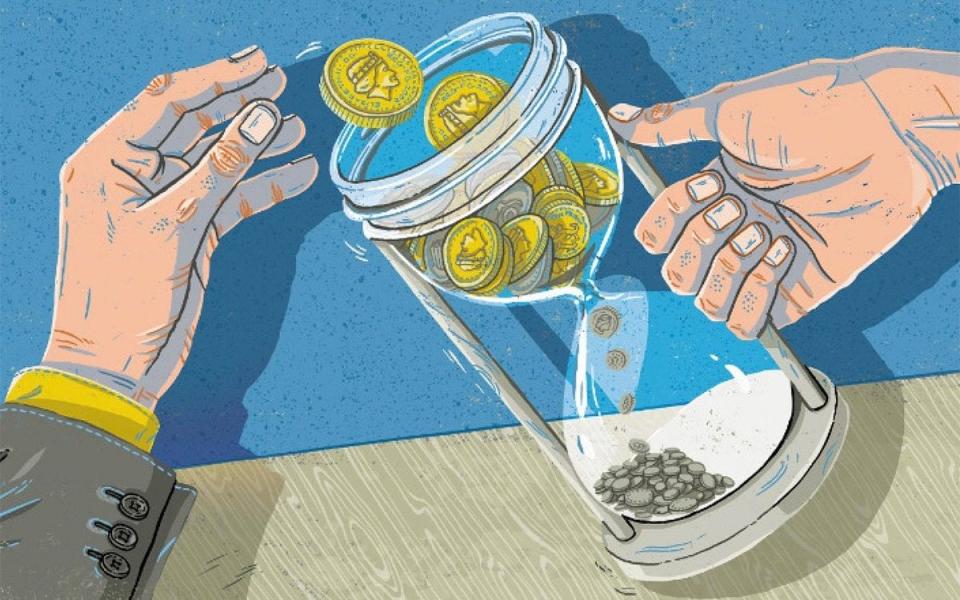These are the failing investments you should sell now

Investors have nearly £20bn in funds delivering investment returns far below similar rivals.
The amount of savers' cash held in funds performing worse than peers investing in the same sector has almost doubled from £11bn to £19bn since last year, as higher numbers of fund managers have failed to adapt to recent market volatility.
That’s according to a twice-yearly “Spot the Dog” report by investment brokers Bestinvest, which shows the number of so-called “dog funds” has risen to 44, up from 31 in August.
Its report is designed to help DIY investors spot the “runts in the litter” of their portfolios, allowing them to move money to better performing funds investing in similar markets.
Inflationary pressures and rising interest rates have pushed more funds into the “doghouse” this year, as investment strategies that have previously delivered strong profits – like investing in growth stocks, small-caps and mid-caps – disappointed in 2022.
The £2.2bn St James's Place International Equity, for example, managed to escape the list last year. But it is now near the bottom of the pile, after returning 25pc less than rivals within its benchmark sector of global funds over the past three years. St Jame's Place said it had recently replaced the fund’s manager and that over a 10-year period the fund outperformed the market.
The underperformance was partly down to its weighting towards tech stocks. Funds focused on small caps and mid caps, like MI Sterling Select Companies Fund and TB Saracen UK Income, also made the list this year after delivering returns below their sector averages.
Rob Morgan, of the wealth manager Charles Stanley, said: “We now are seeing the emergence of more growth-oriented funds in the tables of poor performance. Rewind a couple of years and the ‘dog’ tables would have been full of value funds, some of which have gone on to do pretty well, especially if they were invested in areas eschewed by many investors such as energy.”
Investment styles inevitably dip in and out of favour so the funds featured on Bestinvest’s dog list could still bounce back when market conditions change, Mr Morgan said.
However, some fund managers have little excuse for their poor performance, he added. “It’s not a surprise that multi-manager investments, which can come out as expensive due to their layers of charges, feature prominently.”
Hargreaves Lansdown’s £1.8bn Multi-Manager Special Situations trust made the list this year, returning 22pc less than rivals in its sector over the past three years. Its relatively high 1.37pc fee ate into investors’ net returns.
Hargreaves Lansdown recently insisted its funds represented value, despite many of them underperforming on a three- and five-year basis.
Investors should also beware of “closet trackers”, Mr Morgan said – funds which are actively managed but, under the bonnet, closely resemble far cheaper passive tracker funds.
“Halifax UK Growth and Scottish Widows UK Growth may warrant further scrutiny here,” Mr Morgan said. Both are repeat offenders in Bestinvest’s lists.
Jason Hollands, of the broker, said that the difference between the best and worst performing funds “cannot be explained by fees alone” and “ultimately comes down to the decisions taken” by the managers who operate them.
Schroders was singled out as having the highest amount of investors’ money in underperforming funds, with ten of its funds making the list, including the Scottish Widows and HBOS funds, for which it is the underlying manager.
The worst performing funds overall were those taking specialist investment approaches. The FTF Martin Currie Global Unconstrained fund, which holds less than 40 companies that stand to benefit from themes such as cloud computing, was the worst relative performer, down 36pc compared to its sector counterparts over the past three years.
Schroders, Hargreaves Lansdown, Halifax, St James's Place and Franklin Templeton Investments were approached for comment.

 Yahoo Finance
Yahoo Finance 